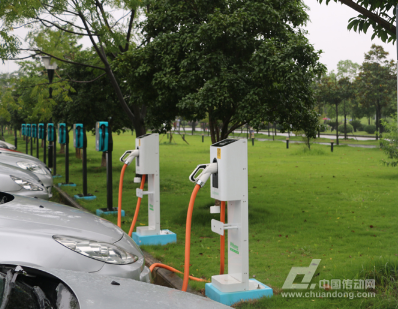
Privacy statement: Your privacy is very important to Us. Our company promises not to disclose your personal information to any external company with out your explicit permission.
A website published an article on July 18 stating that China has made a decisive contribution to the future of electric vehicles. However, industry experts still have doubts about the future development of this new technology. Their reason is that the ecological significance of electric vehicles is small, and the mileage is too short. However, the technical choice seems to have been made, and for a completely different reason. The specific summary of the article is as follows:

Volvo has recently established itself as the creator of travel trends. The Swedish carmaker announced that it will no longer produce diesel-powered cars from 2019 onwards. At the same time Volvo talked about a "new chapter" in the history of the car.
However, for a long period of time, not all industry players hold this view. A few months ago, Mavda’s European president Jeffrey Gayton said in an interview that the Japanese automaker does not believe that the future belongs to electric vehicles. Although Mazil will produce more alternative energy vehicles than it currently does before 2020, he said, "But hybrid or electric vehicles are not central to our planning."
After all, Volvo and Mazda are right. The facts will tell us. However, according to Konstantinos Bloujos, head of the center of an institution and professor at the Federal Institute of Technology in Zurich who specializes in efficient travel research, there is a trend that is very clear. "There are many signs that the future car will be an electric car," he said in an interview.
According to Bluejos, there is a main reason for this - China. China has created a new environment for car production, he said. In addition to the country’s large and serious air pollution in many Chinese cities, especially a strictly implemented industrial policy has a decisive significance.
In fact, China aims to produce its own domestic auto market. Simply because of the huge scale of the local market, China will become the benchmark for automotive superpowers and future automotive technologies. The Chinese government systematically chooses electric vehicles because of technical and power engineering, Bluhoos said.
China's industry has failed to catch up with the Western automakers in gasoline engines. However, in terms of electric vehicles, China not only possesses the necessary raw materials but also has the industrial capabilities and financial resources to dominate the market, the auto expert said. "So China has all the levers that affect this trend."
Against this backdrop, there is nothing strange about Volvo’s desire to become a pioneer in electric vehicles. From 2010, Volvo belongs to China Geely Automobile. The acquisition of Western automakers or parts suppliers may also be part of China's expansion strategy.
July 18, 2024
July 17, 2024
Contactar proveedor
July 18, 2024
July 17, 2024

Privacy statement: Your privacy is very important to Us. Our company promises not to disclose your personal information to any external company with out your explicit permission.

Fill in more information so that we can get in touch with you faster
Privacy statement: Your privacy is very important to Us. Our company promises not to disclose your personal information to any external company with out your explicit permission.